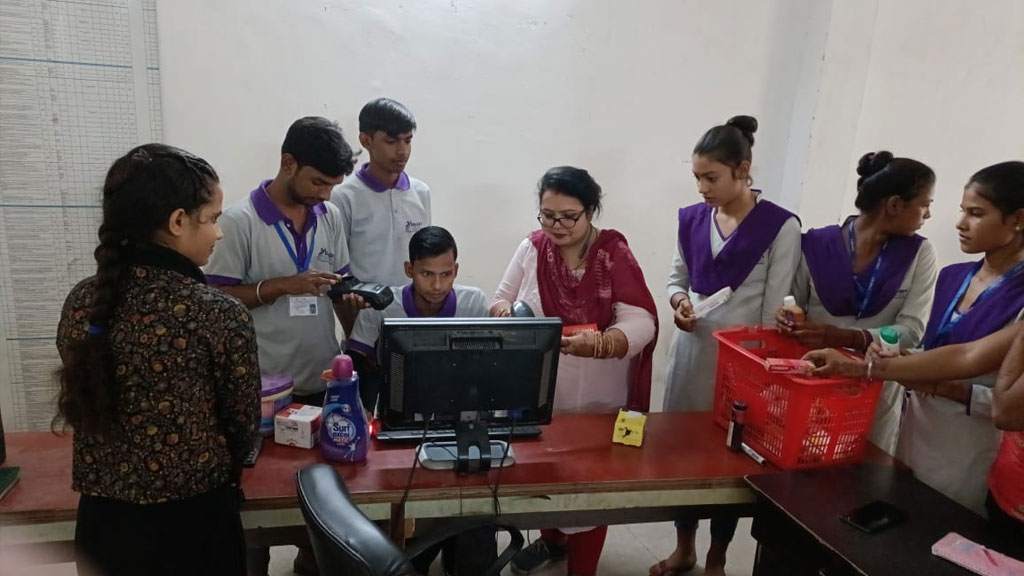Introduction:
In the dynamic landscape of Corporate Social Responsibility (CSR), there is a growing recognition of the transformative power of education as a catalyst for positive change. CSR initiatives are increasingly shifting their focus from traditional philanthropy to strategic interventions in education that extend beyond the classroom. This article explores how CSR initiatives are bridging the gap “From Classroom to Community,” fostering sustainable development and empowerment through targeted educational programs.
Strategic Education Investments: A Shift in CSR Paradigm
CSR initiatives are redefining their approach to education by strategically investing in programs that have a lasting impact on communities. Rather than a one-size-fits-all approach, corporations are partnering with educational institutions and NGOs to tailor initiatives that address specific needs, ensuring that their contributions create meaningful and sustainable change.
Infrastructure Development: Building Foundations for Learning
One of the primary focuses of CSR initiatives in education is infrastructure development. From constructing classrooms and libraries to providing essential amenities, these initiatives create conducive environments for learning. By investing in the physical spaces where education takes place, corporations contribute to the long-term development of communities.
Access to Quality Education: Bridging Socio-Economic Gaps
CSR initiatives are actively working to bridge socio-economic gaps in education. By funding scholarships, supporting schools in marginalized communities, and promoting initiatives that increase enrollment, corporations are ensuring that every child has access to quality education, regardless of their economic background.
Teacher Training and Professional Development: Empowering Educators
Recognizing the pivotal role of educators, CSR initiatives are investing in teacher training and professional development programs. By enhancing the skills and capabilities of teachers, corporations contribute to the quality of education provided, creating a ripple effect that positively impacts the entire community.
Digital Learning Initiatives: Navigating the Technological Landscape
In the digital age, access to technology is critical for educational advancement. CSR initiatives are stepping up to address the digital divide by funding digital learning initiatives. These programs provide students and educators with the tools and resources needed to navigate the technological landscape, ensuring that communities stay connected and informed.
Vocational Training and Skill Development: Aligning Education with Employment
CSR initiatives are expanding their focus beyond traditional academics to include vocational training and skill development programs. By aligning education with employment opportunities, these initiatives empower individuals to contribute meaningfully to their communities, fostering economic growth and self-sufficiency.
Community Engagement Programs: Involving Stakeholders
CSR initiatives are embracing community engagement as a fundamental component of their educational programs. By involving local communities, parents, and stakeholders, corporations ensure that their initiatives are culturally sensitive and aligned with the unique needs of the community. This collaborative approach fosters a sense of ownership and sustainability.
Environmental Education and Sustainability: Fostering Responsible Citizens
Many CSR initiatives incorporate environmental education and sustainability programs into their educational efforts. By instilling a sense of responsibility for the environment, corporations contribute to creating future generations of socially conscious and environmentally aware citizens who actively participate in community initiatives.
Conclusion:
The journey “From Classroom to Community” exemplifies the evolving role of CSR initiatives in education. By strategically investing in infrastructure, promoting access to quality education, empowering educators, embracing digital learning, and fostering community engagement, corporations are creating a holistic approach to education that extends far beyond the classroom walls. As CSR continues to prioritize education as a cornerstone for societal development, the impact on communities is profound, creating a ripple effect that empowers individuals, enhances livelihoods, and contributes to the sustainable growth of societies worldwide.
- By admin

